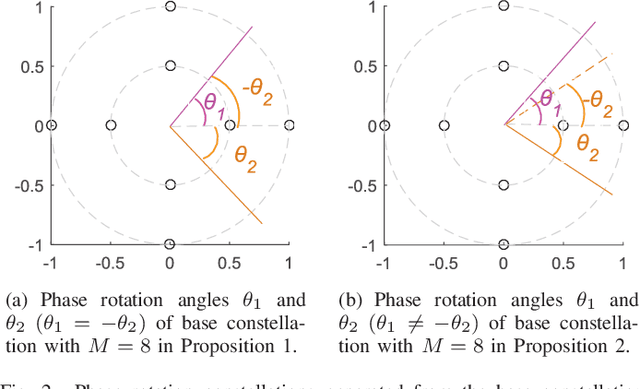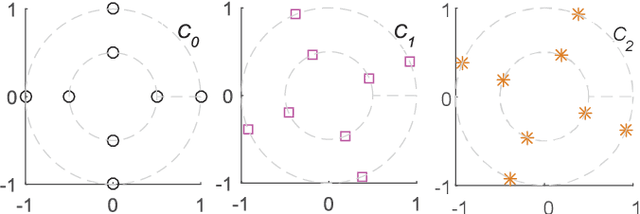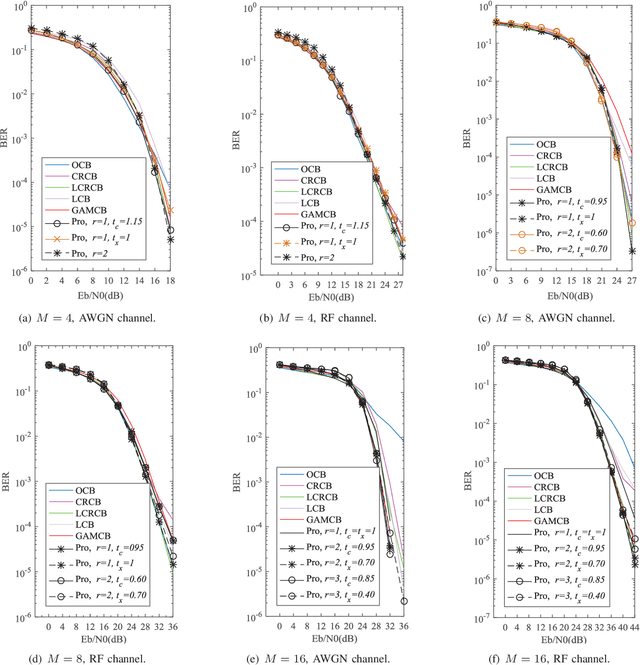SCMA Codebook Design Based on Uniquely Decomposable Constellation Groups
Paper and Code
Mar 06, 2021



Sparse code multiple access (SCMA), which helps improve spectrum efficiency (SE) and enhance connectivity, has been proposed as a non-orthogonal multiple access (NOMA) scheme for 5G systems. In SCMA, codebook design determines system overload ratio and detection performance at a receiver. In this paper, an SCMA codebook design approach is proposed based on uniquely decomposable constellation group (UDCG). We show that there are $N+1 (N \geq 1)$ constellations in the proposed UDCG, each of which has $M (M \geq 2)$ constellation points. These constellations are allocated to users sharing the same resource. Combining the constellations allocated on multiple resources of each user, we can obtain UDCG-based codebook sets. Bit error ratio (BER) performance will be discussed in terms of coding gain maximization with superimposed constellations and UDCG-based codebooks. Simulation results demonstrate that the superimposed constellation of each resource has large minimum Euclidean distance (MED) and meets uniquely decodable constraint. Thus, BER performance of the proposed codebook design approach outperforms that of the existing codebook design schemes in both uncoded and coded SCMA systems, especially for large-size codebooks.
 Add to Chrome
Add to Chrome Add to Firefox
Add to Firefox Add to Edge
Add to Edge